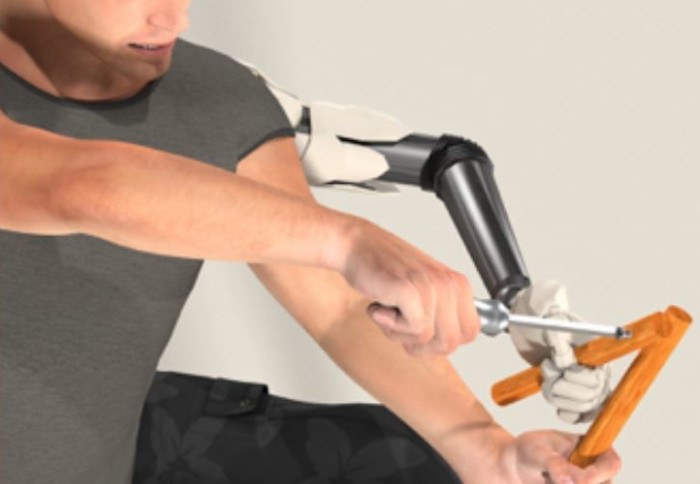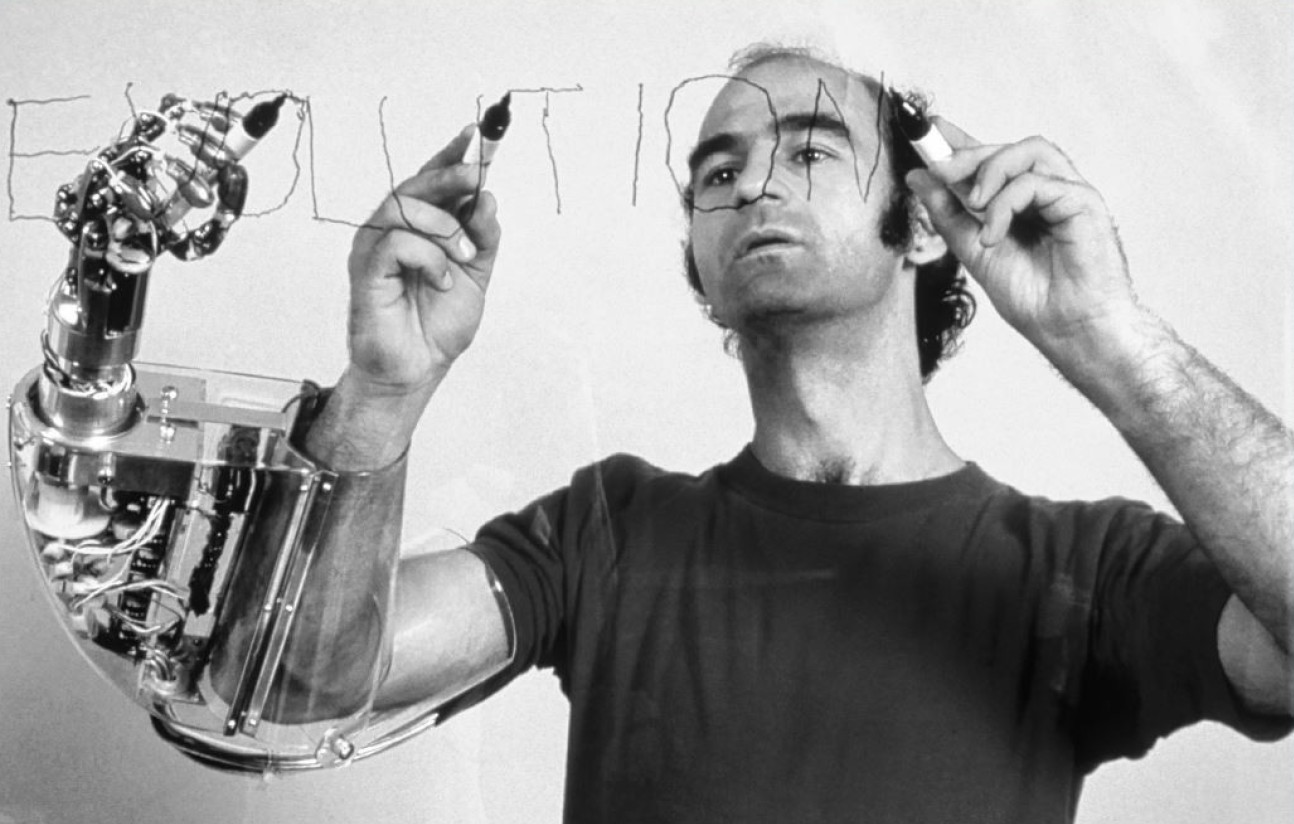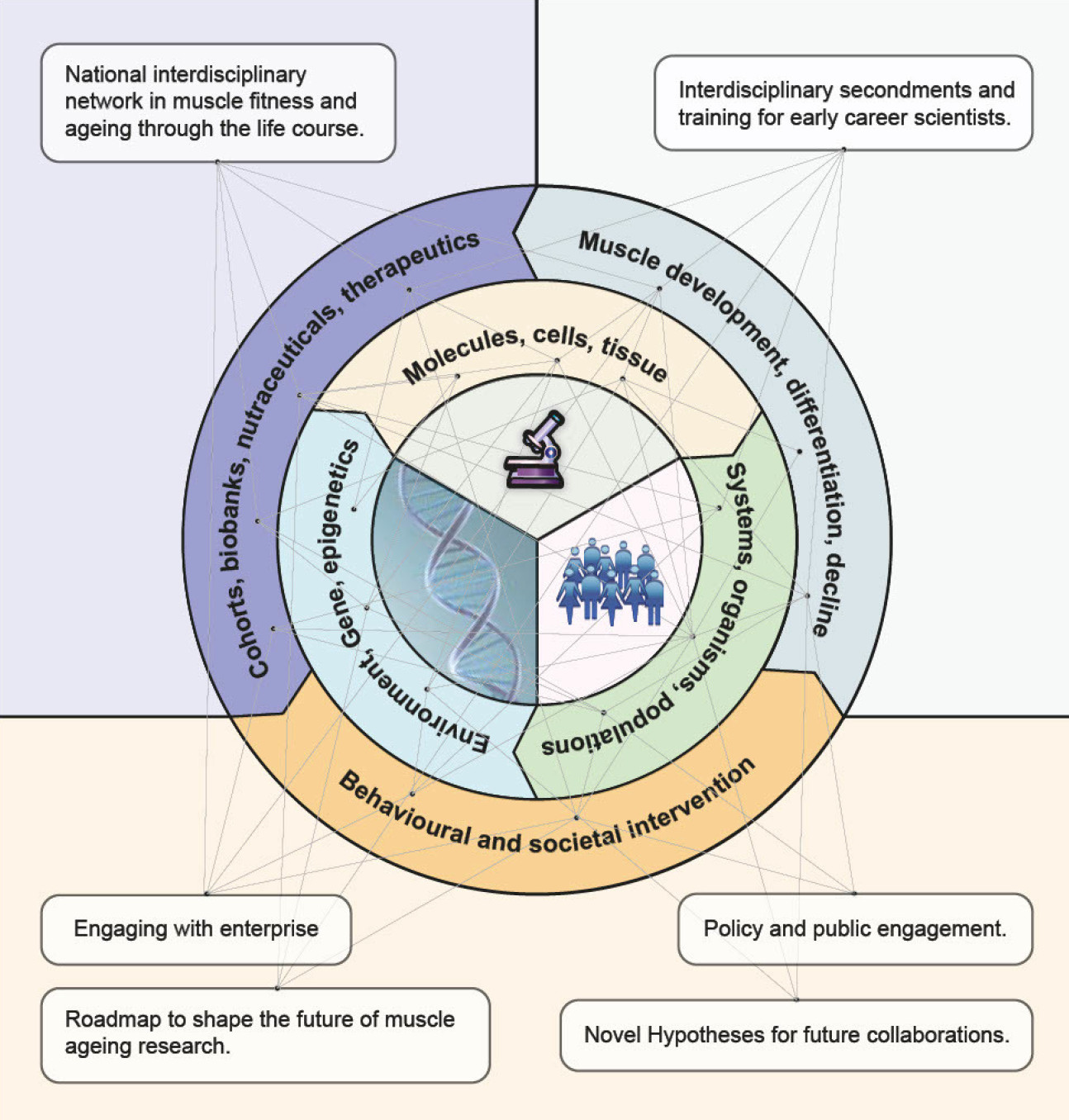Engineering extra limbs and austerity food purchases: News from the College

Credit: Tobias Pistohl
Here’s a batch of fresh news and announcements from across Imperial.
From research into how humans could use extra artificial limbs, to a study into how austerity policies affect the foods that people buy, here is some quick-read news from across the College.
Engineering extra limbs
 Bioengineering researchers have previously shown how the brains of people born with an extra finger adapt to the workload, and have explored how to replace human limbs with robotic body parts that the user will feel and command as if part of their body. But what about combining the two? Could extra limbs, rather than replacement limbs, be integrated into the body, and how would the brain adapt to control them?
Bioengineering researchers have previously shown how the brains of people born with an extra finger adapt to the workload, and have explored how to replace human limbs with robotic body parts that the user will feel and command as if part of their body. But what about combining the two? Could extra limbs, rather than replacement limbs, be integrated into the body, and how would the brain adapt to control them?
Within the European program NIMA, the Human Interface labs of Professor Etienne Burdet and Professor Dario Farina have worked with researchers at University of Freiburg and Campus Bio Medico University of Rome to review and analyse the robotics and neuroscience of movement augmentation. After investigating areas including how to extract control signals from limb movements, muscle activation or neural signals, how to provide sensory feedback, and how best to train individuals, the team then propose scenarios to test the possibility of extra artificial limbs.
Jonathan Eden, the paper’s first author said: “Ideally, just like Dr Octopus in the Spiderman movies, these devices should enable users to manoeuvre, lift heavy objects and perform complex assembly tasks independent of or in coordination with their natural limbs.”
Read the full paper in Nature Communications.
Maintaining muscle
 Imperial scientists will join a new research network aiming to understand and prevent muscle wasting in older people. The MyAge network will be led by the University of Southampton and is one of eleven new networks funded by the BBSRC and the MRC to focus on the challenges and opportunities of the UK’s ageing population.
Imperial scientists will join a new research network aiming to understand and prevent muscle wasting in older people. The MyAge network will be led by the University of Southampton and is one of eleven new networks funded by the BBSRC and the MRC to focus on the challenges and opportunities of the UK’s ageing population.
Dr Kambiz Alavian, from Imperial’s Department of Brain Sciences, who is the Imperial Lead for the network, explained: “The main objective of this national network is to address the problem of muscle ageing, which leads to loss of mobility and a host of major societal issues.
“We will tackle this problem by breaking down disciplinary barriers and engaging with academic and industry experts, policymakers, and stakeholders across different levels of society.”
Read more about the collaboration on the UK Ageing Network website.
Austerity food purchases

Cuts to public sector spending from austerity policies may influence the types of food that people buy, according to a study.
Researchers, led by Rosemary Jenkins, from Imperial’s School of Public Health, investigated the impact of reductions in local authority service spending on food consumption between 2008-2015, specifically purchases of fresh fruits and vegetables, foods high in fat, salt and sugar, and takeaways.
They found that purchases of foods high in fat, salt, and sugar decreased with a reduction in total service spending, while purchases of takeaways increased. When examined specifically, highways and transport spending also affected purchases of fruits and vegetables.
Dr Jenkins, who was first author of the study, said: “Up until now, research on austerity policies and food has focused on welfare reform and foodbank use.
“Our research is the first to examine the impacts of changes in public sector spending on foods people buy, and our study suggests that there may be an impact.”
Read more about the study in BMJ Nutrition, Prevention & Health. Want to be kept up to date on news at Imperial? Sign up for our free quick-read daily e-newsletter, Imperial Today.
Want to be kept up to date on news at Imperial? Sign up for our free quick-read daily e-newsletter, Imperial Today.
Article text (excluding photos or graphics) © Imperial College London.
Photos and graphics subject to third party copyright used with permission or © Imperial College London.
Reporter
Kerry Noble
Department of Surgery & Cancer
Conrad Duncan
Communications Division
Caroline Brogan
Communications Division